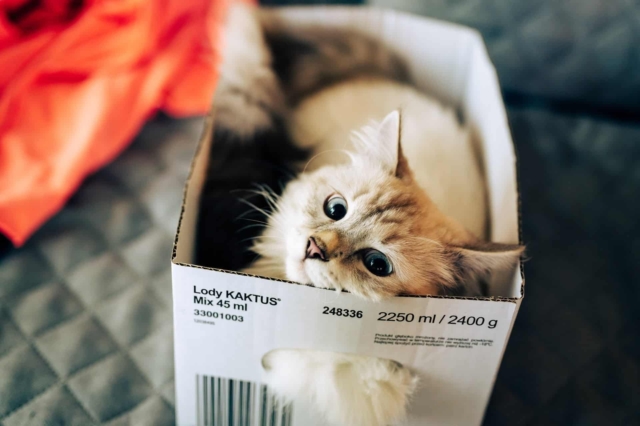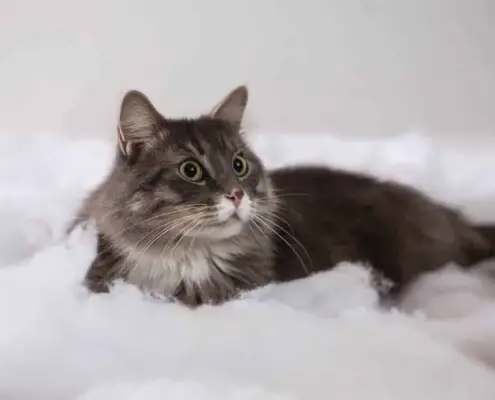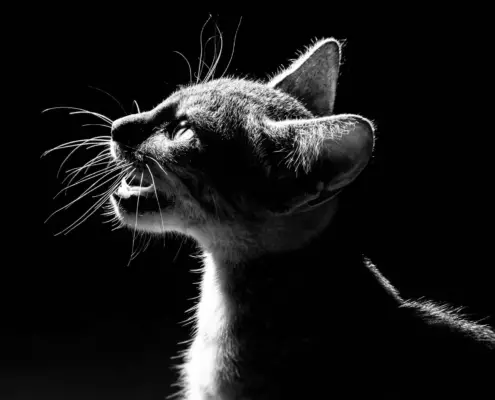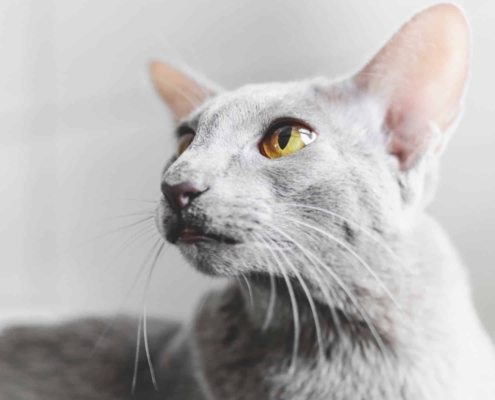
Cats have a well-known reputation for their love of lounging in boxes. They can often be found curled up inside a cardboard box, no matter how small or large it may be. This peculiar behavior has puzzled cat owners for years, leaving them wondering why their feline friends are so drawn to boxes. In this article, we will delve into the various reasons that explain why cats love boxes, as well as ways to incorporate them into your cat’s environment.
The Fascination of Cats with Boxes
Cats have a unique relationship with boxes, and their fascination with them goes beyond just a cozy place to sleep. Boxes provide a sense of security and comfort for cats, and they can retreat to them whenever they feel threatened or anxious. In addition, boxes offer a sense of privacy for cats, which is essential for their mental health.
Cats are also natural hunters, and boxes provide an excellent hiding place for them to stalk their prey. This instinctual behavior is ingrained in cats, and they will often pounce on unsuspecting objects that come near their box. Boxes also provide an excellent vantage point for cats to observe their environment, giving them a sense of control over their surroundings.
The Science Behind Cats’ Love for Boxes
The science behind cats’ love for boxes is rooted in their natural instinct to seek out enclosed spaces. This behavior can be traced back to their wild ancestors, who would seek out small, enclosed spaces to hide from predators. In addition, boxes offer a sense of warmth and security for cats, which is essential for their well-being.
Research has also shown that the material of the box plays a role in why cats are drawn to them. Cats are attracted to materials that retain heat, such as cardboard, which provides a warm and cozy environment for them to sleep in. The enclosed space of the box also provides a sense of security, which is essential for cats’ mental health.
Evolutionary Theories on Cats and Boxes
Evolutionary theories suggest that cats’ love for boxes is rooted in their ancestors’ need for protection from predators. Small, enclosed spaces provided a sense of safety and security for wild cats, allowing them to rest and recover from their hunting expeditions. As cats evolved, their instinctual behavior of seeking out enclosed spaces remained, leading to their love of boxes.
Another theory suggests that cats’ love of boxes is a result of their domestication. Domesticated cats are often kept indoors, which limits their access to natural hiding places. Boxes provide an excellent substitute for indoor cats, allowing them to fulfill their natural instinct to seek out enclosed spaces.
Psychological Reasons for Cats’ Affinity to Boxes
Cats’ love of boxes also has psychological reasons. Boxes offer a sense of privacy for cats, which is essential for their mental health. Cats are territorial creatures, and having a designated space that they can call their own provides a sense of security and comfort.
In addition, boxes offer a sense of control for cats. Cats are independent animals, and having a space that they can retreat to whenever they want gives them a sense of control over their environment. This sense of control is essential for their mental health, as it helps them feel more confident and secure in their surroundings.
Benefits of Providing Boxes for Cats
Providing boxes for cats offers numerous benefits. Boxes offer a sense of security and comfort for cats, which is essential for their mental health. They also provide a sense of privacy and control for cats, which is essential for their well-being.
Boxes also provide an excellent way for cats to relieve stress. Cats can become anxious and stressed in unfamiliar environments, and having a designated space that they can retreat to can help alleviate that stress. Boxes also provide a way for cats to exercise their natural hunting instincts, which is essential for their physical health.
Creative Ways to Incorporate Boxes into Your Cat’s Environment
Incorporating boxes into your cat’s environment can be a fun and creative way to provide them with the benefits that boxes offer. One way to do this is by creating a box maze for your cat. This can be done by connecting several boxes together, creating a fun and stimulating environment for your cat to explore.
Another way to incorporate boxes is by creating a box castle for your cat. This can be done by stacking boxes on top of each other, creating a multi-level play area for your cat. Adding toys and treats to the boxes can provide additional stimulation for your cat.
Understanding Your Cat’s Behavior in Boxes
Understanding your cat’s behavior in boxes is essential for providing them with the best possible environment. Cats may exhibit different behaviors when in a box, such as kneading or purring. These behaviors are often a sign that your cat is comfortable and relaxed.
Cats may also exhibit territorial behavior when in a box. They may hiss or growl at other pets or humans who come near their box. This behavior is normal and should be respected, as it is essential for your cat’s mental health.
The Impact of Boxes on a Cat’s Mental and Physical Health
The impact of boxes on a cat’s mental and physical health is significant. Boxes provide a sense of security and comfort for cats, which is essential for their mental health. They also provide a way for cats to relieve stress and exercise their natural hunting instincts, which is essential for their physical health.
However, it is important to note that boxes should not be the only source of stimulation for your cat. Cats require a variety of activities to keep them mentally and physically healthy, such as playtime and exercise.
Box Alternatives for Cats Who Don’t Like Traditional Boxes
Not all cats are drawn to traditional boxes, but there are alternatives that can provide similar benefits. One alternative is a cat tree, which provides an elevated space for cats to retreat to. Another alternative is a cat tunnel, which provides an enclosed space for cats to explore.
It is essential to find the right alternative for your cat, as each cat has its unique preferences and needs.
Embracing the Box-Loving Nature of Cats
In conclusion, cats’ love of boxes can be attributed to their natural instinct to seek out enclosed spaces. Boxes offer a sense of security, comfort, and privacy for cats, which is essential for their mental and physical health. Incorporating boxes into your cat’s environment can provide numerous benefits and can be a fun and creative way to stimulate your cat.
By understanding your cat’s behavior in boxes and providing them with alternative sources of stimulation, you can ensure that your cat remains mentally and physically healthy. Embrace the box-loving nature of cats, and provide your feline friend with a cozy and stimulating environment.
If you enjoyed my article, I would appreciate you sharing it with your network.

Sima Ndlebe
Sima writes for CatBuzz. He is interested in Cats, Health and Fitness, and Entrepreneurship.
Published: 15 November 2023




